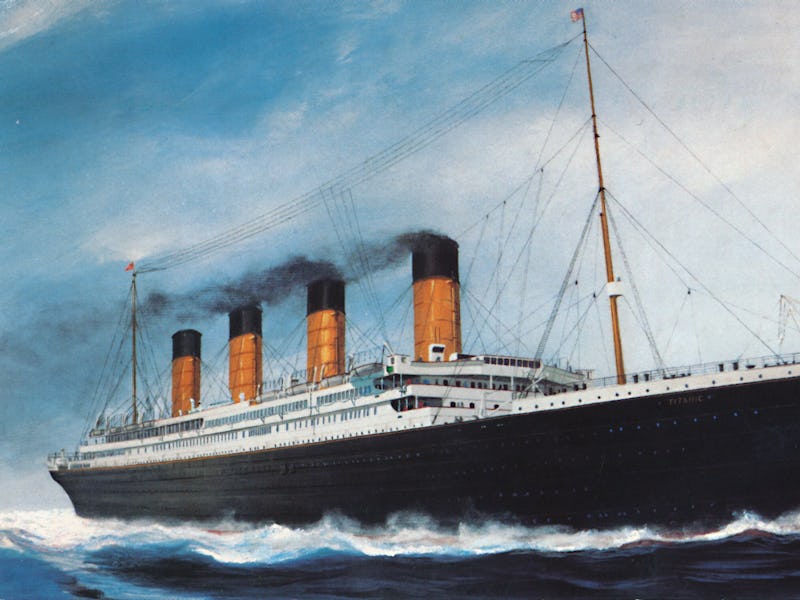Horror writer Alma Katsu reveals the untold stories aboard the Titanic
Katsu joins Inverse Happy Hour to do a special reading from her new novel, The Deep.

Alma Katsu is a horror author and an expert in emerging surveillance technology. She's also a guest on Inverse Happy Hour to propel us back in time with her new book, The Deep, where eerie disturbances and disappearances took place on that fateful trip aboard the Titanic. In short: It's far from the sweeping romance of Jack and Rose we're all too familiar with in James Cameron's 1997 film adaptation.
“This is sort of a reimagining of the story of the sinking of the Titanic and its sister ship, the Britannic, with just this little horror twist,” Katsu tells Inverse.
Katsu also takes the opportunity to delve a bit into her supernatural upbringing in a small New England town, how A.I. technology is being used in the medical world, and whether it will soon make coding obsolete. She also offered updates on her previous novel, The Hunger, coming to the big screen and why she prefers “dashing, Lord Byron-esque” ghosts over, say, Casper.
Below are the Inverse Happy Hour editorial highlights:
On learning new things about the Titanic story through working on The Deep— “My husband was watching this documentary of a dive to the Britannic, and they mentioned it was the sister ship of the Titanic and I have never even known there was a sister ship. So then I sat down to watch the documentary with him and they announced that there’s a woman who survived both sinkings. Well, I don’t even have to know that woman’s story to know there’s going to be a horror novel in this boat. It’s like finding out your neighbor and his brother were both serial killers. There’s going to be a great story in it.”
“So that’s actually where the idea for it came from. So once I was doing the research, I really learned a lot of amazing things. I think it’s hard sometimes for modern people to sort of wrap their heads around what made a wonder of the previous era. The size of the ship, they touted it as being unsinkable, the technology that went into it.”
“I do have sort of maybe this dark outlook on life by which conventional horror writing and filmmaking kind of pales.”
“But the most amazing thing, actually, is the people. In order to get a sense of which real people I would pull into the story, I read like little thumbnail bios on all of them — that’s 2300 people. And what fascinated me was, like, every single one of them was more interesting than the people you meet today. There are just so many really interesting great characters among all of the passengers. We all hear about the famous first-class passengers like the Astors and Benjamin Guggenheim and all those folks, but there’s just really a lot of memorable characters throughout the passengers and the crew.”
On what makes horror so appealing— “Well, life is horrible. So, I’ve been a technologist for the last 12 years or so, but the vast majority of my time in intelligence was spent working more traditional intelligence topics, and a big part of that was humanitarian in disasters, and that includes genocides and mass atrocities. So for a long time during the golden age of genocides … it exposes you to, you know, people can do really horrible, horrible things. And so I do have sort of maybe this dark outlook on life by which conventional horror writing and filmmaking kind of pales, actually.”
This interview has been edited for clarity.
—
A huge thanks to Katsu for joining us!